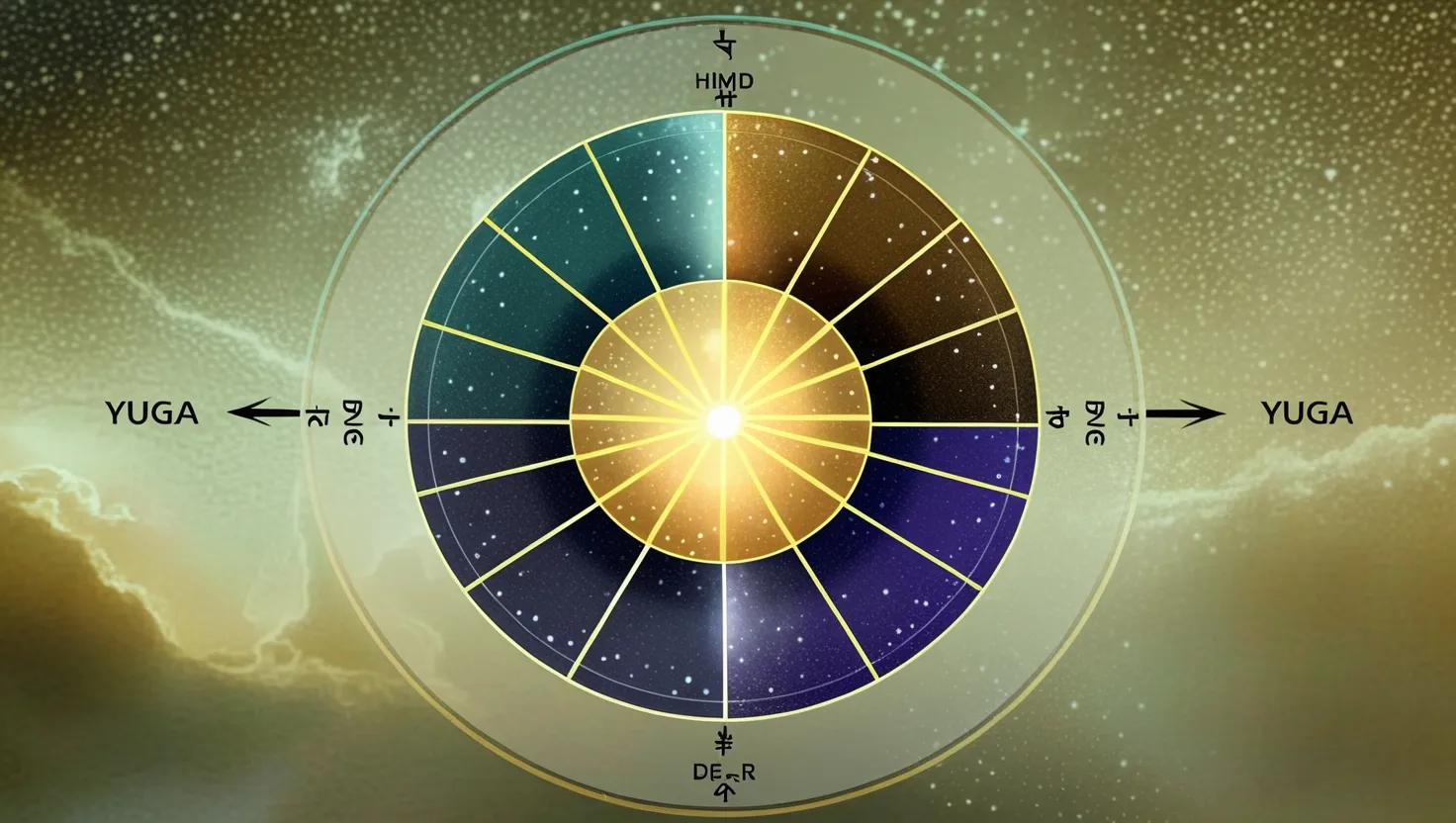When I reflect on the Vedic concept of wealth, I immediately recognize how distinctly it diverges from modern, transactional definitions of prosperity. For centuries, many have defined wealth simply as the accumulation of material goods and financial assets—a race of numbers, status, and visible possessions. Yet, the Vedic sages proposed something far richer: wealth isn’t just what you own, it’s what nourishes—both yourself and the world around you. This idea continues to challenge and expand my own view of abundance.
The word Artha, at first glance, seems to mean wealth in the obvious sense. But as I’ve studied and thought deeply about Vedic texts, it’s clear Artha means purpose, meaning, and prosperity—woven together. The ancients saw wealth as a basic requirement not just for survival, but for living ethically and fulfilling one’s higher obligations. Artha was never meant to stand alone; it was intimately linked with Dharma, or righteousness. So, every time I think “How much is enough?”, I also need to ask, “Is this wealth being gathered—and used—ethically? Does it serve not just me, but those around me?”
“When wealth is lost, nothing is lost; when health is lost, something is lost; when character is lost, all is lost.” — Billy Graham
Consider the Vedic creation myth, where everything in the world—including rivers, crops, minerals, and even ideas—springs from a divine source. Wealth is not mine or yours; it is a gift we are entrusted with, to be used with kindness and restraint. Sometimes, when managing finances, I find it easy to slip into possessiveness. The Vedas ask me to remember: possession is stewardship, not ownership. This is not a simple mindset shift; it’s an invitation to treat every resource at my disposal as sacred.
Most of us, when we speak of generosity, think of charity as a discretionary act. But in the Vedic worldview, the practice of Dana, or sharing, is foundational. People in ancient times weren’t praised for the size of their fortunes, but for their capacity to share with the needy, support spiritual institutions, and empower knowledge-seekers. The analogy I’ve often found striking is that of circulation: wealth must flow through society, like blood through veins. Hoarding is a form of blockage that harms the whole system. I try to ask myself, “Is my presence in the world nourishing others, or am I a dam in the river?”
“To give away money is an easy matter and in any man’s power. But to decide to whom to give it, and how large and when, and for what purpose and how, is neither in every man’s power nor an easy matter.” — Aristotle
Environmental concerns burn hot today, but even thousands of years ago, Vedic texts laid out principles for responsible management of land, water, forests, and minerals. They warned against drawing more from the earth than what can be sustained. Every act of consumption must carry with it the awareness of effect on future generations. When I make everyday choices—what food to buy, which products to use, how to dispose of waste—it’s a quiet echo of sacred stewardship.
A remarkable insight from my readings: wealth was always meant to serve higher aims. Wealth is a tool for facilitating learning, sponsoring religious rituals, creating art, helping those who work for us, and preserving culture. Possessions, when hoarded solely for personal comfort, lose their spiritual efficacy. A parallel in modern life might be investing in public good—supporting libraries, museums, or scientific research—not just private indulgence.
The ancient sages saw the danger of confusing wants with needs. Contentment was prized. They were quick to note that chasing after more, simply for the thrill of acquisition, leads to restlessness rather than fulfillment. In my own life, I sometimes notice that after securing a comfort I once longed for, satisfaction quickly fades. The Vedic model suggests that true prosperity is not about having the most, but about finding balance—knowing when enough is enough, and learning to be genuinely satisfied with what suffices.
“Contentment is natural wealth, luxury is artificial poverty.” — Socrates
Vedic wisdom also emphasizes ethical business behavior—honesty, quality, reliability. In ancient society, these weren’t just moral recommendations; they were considered as shaping the very fabric of cosmic and social harmony. Every dishonest trade sowed chaos. Today, when I read headlines about fraud or exploitation, I recognize the age-old warning: when transactions become unethical, society as a whole pays the price, not just isolated individuals.
Perhaps what’s most striking to me is how relevant these ideals feel now. Modern economies are riddled with the challenges of over-consumption, inequality, and ecological depletion. The Vedic vision reveals a path where abundance flows from relationship—between people, nature, and the divine. The challenge isn’t just policy reform or new technology, but a recalibration of our outlook on what money and wealth really mean.
How might the world change if every business leader saw their company coffers—however vast—as a sacred trust, meant to uplift others and replenish the natural environment? What would happen if every individual treated their paycheck, inheritance, or windfall as fuel for community well-being, not simply personal advancement? I’ve found these questions deeply illuminating, pushing me to rethink how I allocate my own savings, how I give, and how I judge “success.”
In personal experience, it’s easy to forget that wealth is also a kind of training ground for character. When I receive more, I’m being tested—will I react with arrogance, greed, and insularity, or with gratitude and responsibility? The Vedas frame every possession as a test of integrity. Managing wealth well is a form of spiritual discipline, demanding resolve, humility, and wisdom.
At the same time, poverty was never glorified. Vedic thought holds that deprivation leads to suffering and can impede spiritual progress. Those who don’t have enough struggle to attend to higher ideals; their thoughts turn to survival, not self-realization. This is a crucial corrective to the common notion that material needs and spiritual goals are at odds. In reality, the foundation for deeper living is first laid by ensuring basic comfort, security, and opportunity for all.
“Wealth consists not in having great possessions, but in having few wants.” — Epictetus
I sometimes reflect on how the Vedic model anticipated many of today’s debates. Resource management, income disparity, the ethics of enterprise, even ecological stewardship—they all find echoes in these ancient teachings. This tells me that the quest for balance between material welfare and spiritual well-being is perennial, not a modern invention.
If I pause and ask, “Am I approaching my career, investments, or consumption as ends in themselves, or as means to foster a wider harmony?” the answer hints at how aligned I am with this timeless wisdom. When I consciously shape my actions around stewardship, generosity, and contentment, wealth transforms—from a restless chase to a source of lasting well-being for myself and those around me.
I often conclude that the true utility of Vedic perspectives doesn’t lie in abstract reverence, but in their everyday practicality. I find myself reconsidering buying decisions, charitable giving, and even everyday conversations about money. Each choice is a chance to prioritize harmony over excess, ecosystem over ego, future over fleeting gain.
Which is more valuable: to measure life’s worth by what I can accumulate, or by the legacy I pass on—tangible and intangible—to my family, colleagues, and community?
The Vedic tradition continues to offer not just spiritual solace, but real, concrete strategies for living meaningfully and prosperously in a complex world.
“Try not to become a man of success, but rather become a man of value.” — Albert Einstein
At the heart of it, the Vedic model asks me to see every part of my life—my earning, my spending, my saving and my giving—as connected to the whole. I am both a beneficiary and a caretaker of the world’s abundance. I carry the responsibility—and the privilege—of making every act of wealth a sacred one.






